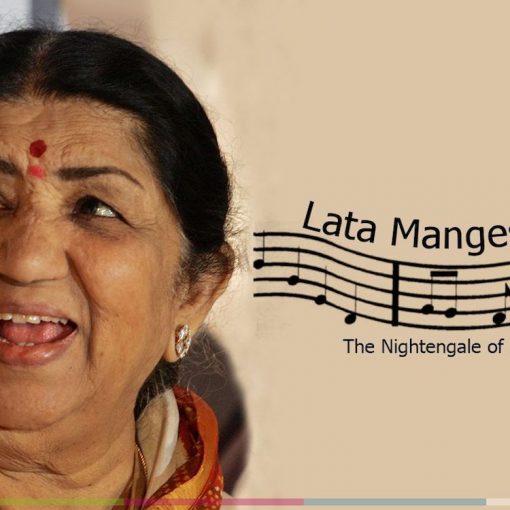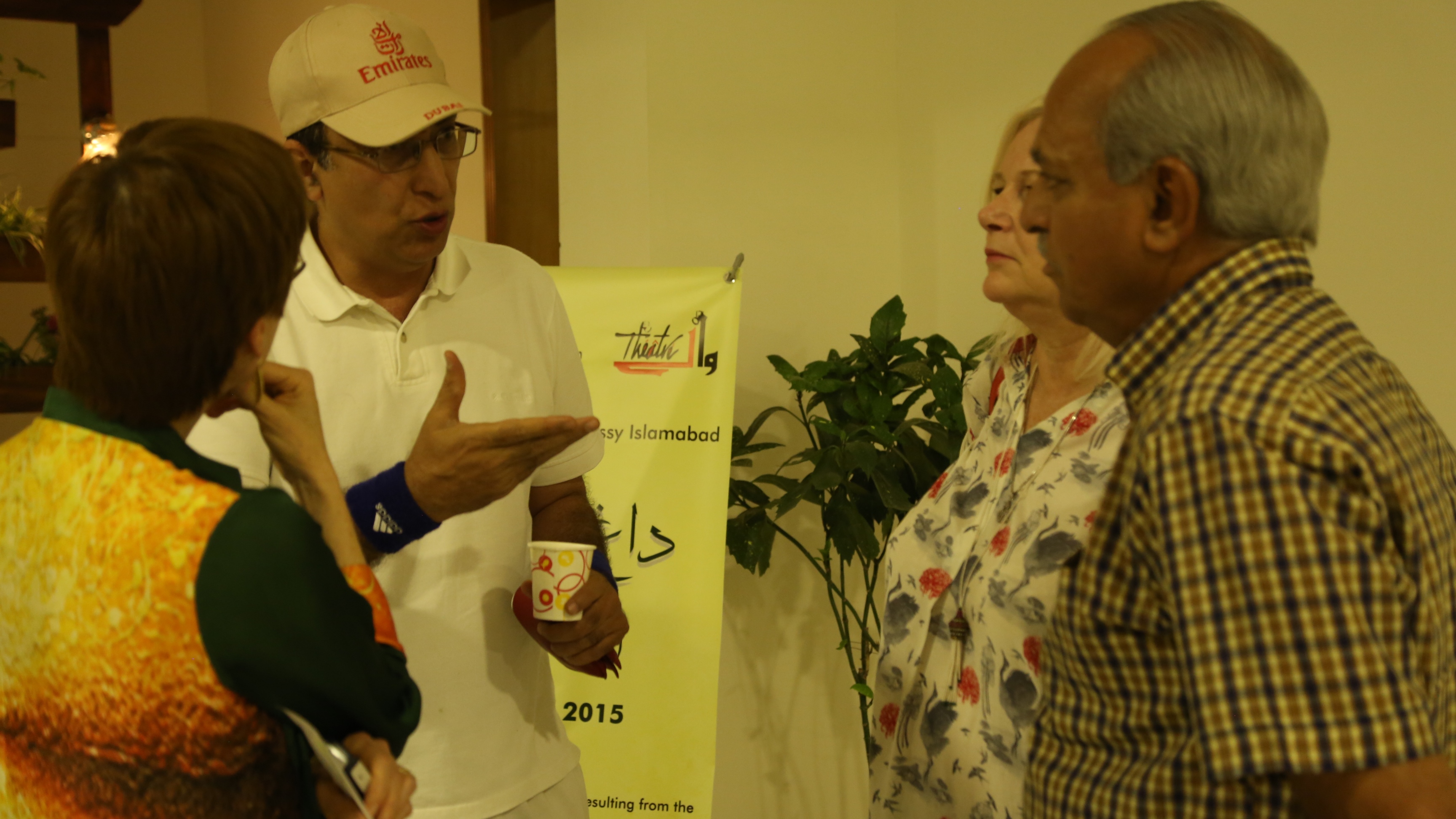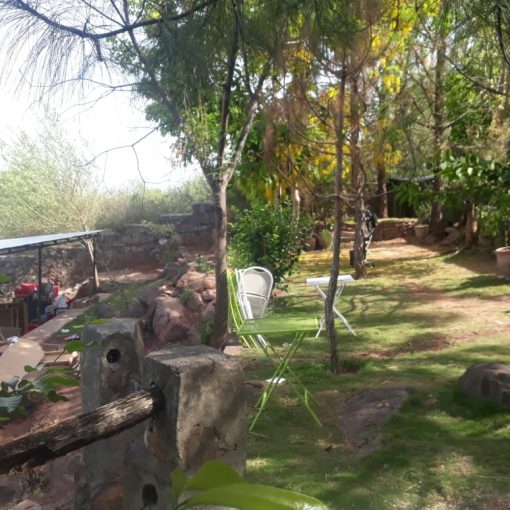by Adil Yousuf
Life goes on. It is the tagline advertisement of modern hope. However, it doesn’t mean that the journey is smooth. This particularly appears true in the case of modern man, the child of enlightenment who lives in the era of buttons, available at his service at the cost of an imposed routine, a life whose success is measured with the quality of its mundane regularity and the refuge it provides from the questions thrown at different moments by his burdened mind. This play is a story of one such moment, a calm peaceful moment enjoyed by a man, soon to be disturbed by another man. The conversation that follows after that intrusion somewhat resembles the waves generated in the calm water by a pebble.
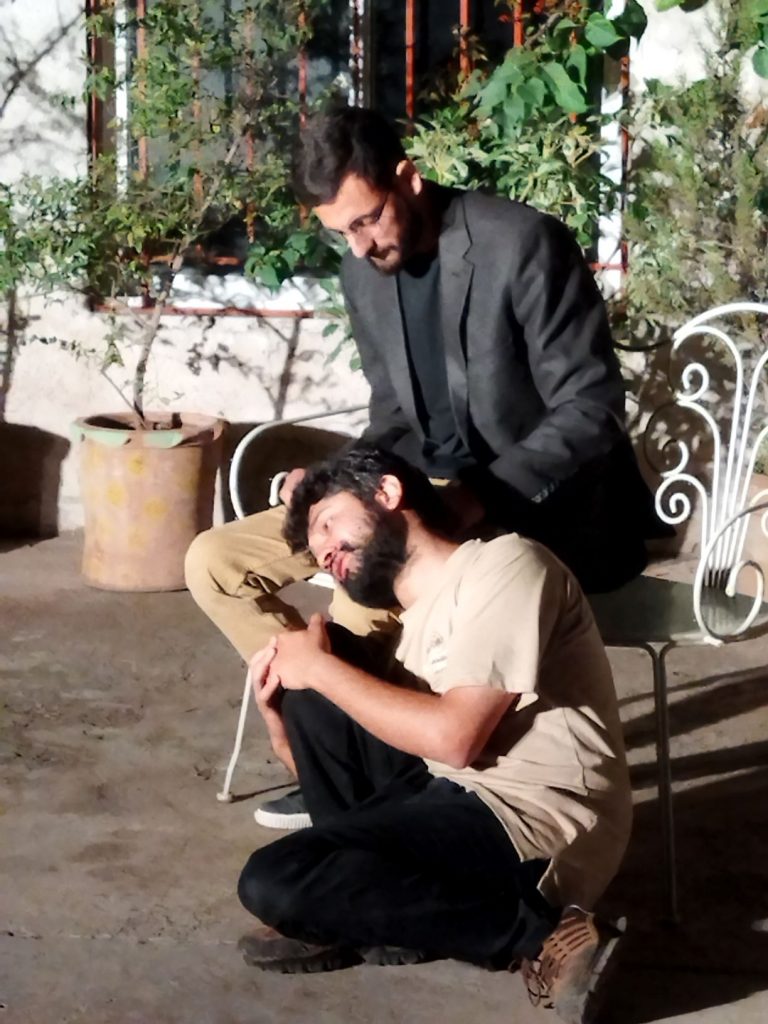
Originally written by Edward Albee, adapted to Urdu by Shehzad Ghias Sheikh and directed by Usama Ahmad khan, the play starts with Jamshed (performed by Ramil Aftab) running into Pervez (performed by Zia-ur-Rehman): a cigar-smoking “settled man” of publishing industry enjoying his afternoon reading Dostoyevsky’s “The Idiot. The conversation starts with Jamshed repeating “ Main zoo gaya tha ( I have been to the Zoo). Although the response he receives is initially cold and uninterested, he soon weaves a web of questions slowly and gradually, from which Pervez struggles to get out throughout the play. Along with the questions, Jamshed also delivers monologues with the longest one ranging to fifteen minutes. As soon as the play evolves, the audience discovers the layers of clarity in his unorganized character, especially in the moments during which he tries to analyze his life and life around him. That clarity is not lost even in the moments of contradictory statements and riddles Jamshed makes throughout the play. This decisiveness finally uncovers its full face in the concluding moments of the play, where a surprise awaits the audience and Pervez, the other voice of the play
Pervez represents every other common man who has got it all: a job, a wife, two daughters, two cats, two parrots, and the luxury of spending time with himself in an afternoon. He starts as a confident man but soon his cover of a settled life is exposed. His shell appears to be broken when he is first asked about his feeling of not having a male child. This is soon followed by further cracks when a series of questions are thrown at him, often leaving him speechless, confused, angry, and at times shocked. Some of that frustration came from the fact that his opinions, most of which were the result of points posed by Jamshed, were interrupted, leaving him with more unclear thoughts. The main test of Zia as Pervez came during Jamshed’s monologues to which all he got to his aid was his silence. Those were the one of the play’s major highlights when Pervez, through his expressions painted a picture of a man who is on the edge of losing the balance he has maintained all these years. Another highlight was when the carefree character of Jamshed breaks into tears: something which was felt by the audience as the gasps in the open hall reflected.
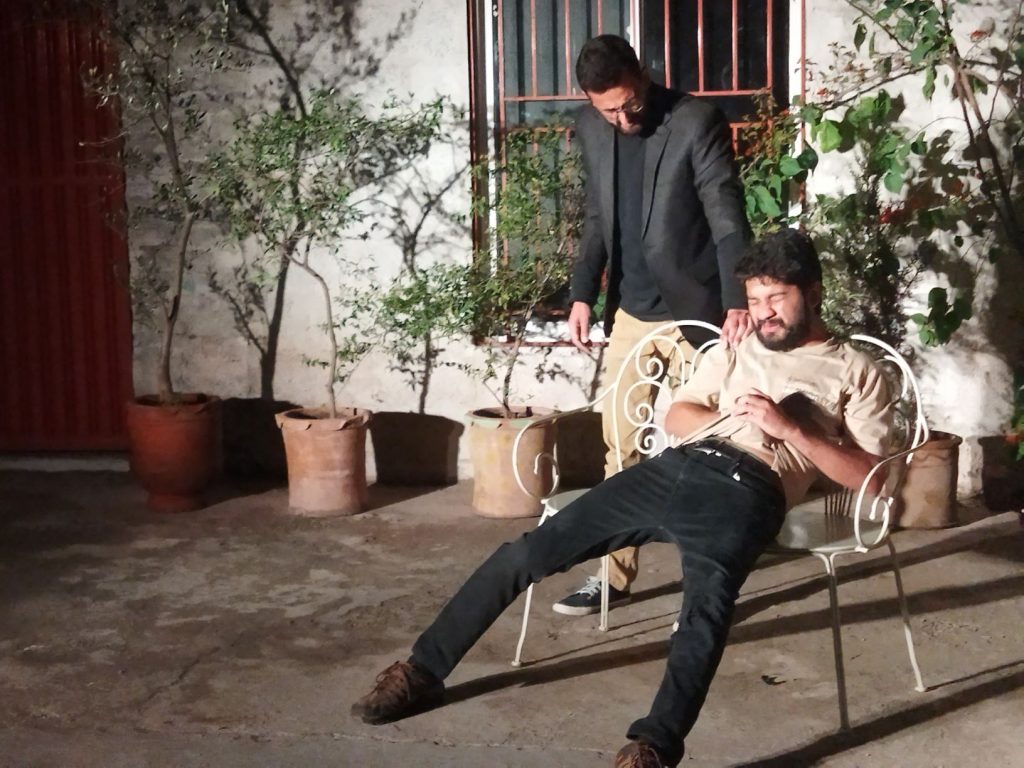
Usama Ahmad Khan, the debutant director carried out experiments throughout this play. The first one was Dostoyevsky’s “The Idiot”: the novel Pervez was reading. As the play evolved, the audience discovered that compared to Pervez, the reader, Jamshed had a lot more in common with Myshkin, the novel’s protagonist. Usama’s approach with the settings was also unique, as the stage was set in the corner, reflecting on the state of the characters as they were soon pushed into the corners. Another choice was starting the play with Aafaq Ahmad’s narration of W.H. Auden’s “The Unknown Citizen”. Adapted in Urdu for this play and narrated while Pervez’s statue was in the background, this poem provided a glimpse of what is supposed to happen in the next hour. While adapting for the stage, Usama kept the local context in the play as the characters hinted at the culture of twin cities throughout the play.
It was a challenging role for both actors as their previous performances were completely in contrast with the characters of this play. Ramil (The actor for Jamshed)’s last performance was in an adaption of Krishan Chandar’s “ Jaman ka Pair” was of a common man who is dominated by the structures around him and Zia played the role of a talkative Raam Singh in Safeerullah khan’s Manto adaption of “ Akhri Salute”. Therefore, for the regular audience of Theatre wallay it was a treat to see them in a different color. Both the actors lived to the expectations of the audience which is why they received a standing ovation from them at the end of the play.
While reviewing for the play, members of the audience had different interpretations. Some pointed out the comparison between Pervez’s pets and the dog of Jamshed’s neighbor. Some discussed the questions of masculinity, communication, and tradition. One audience member pointed out the relation between Jamshed’s empty frames and the climax of the play. To some, this play was about escape, which some people at the park and some have to go an extra mile for it. However, they all praised actors for avoiding stagnation and redundancy in a play where most of the action is carried out in the dialogues. They also agreed that a theatre performance such as this sends an important message on World Theatre Day. They were satisfied with the COVID- related measures and showed their gratitude for arranging a complicated theatre performance in such difficult circumstances.
The show goes on as it should and so does life. Although after a performance like this, one wonders what is the difference.

